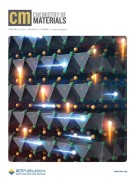 The 8th Special CMSM-ERATO Joint Seminar
The 8th Special CMSM-ERATO Joint Seminar 
(The 274th Special CMSM seminar)
Axis-dependent conduction polarity of Mg3Sb2 and Mg3Bi2 for transverse thermoelectric devices
Dr. Yosuke GOTO
Materials Physics Group, Research Institute for Energy Conservation,
National Institute of Advanced Industrial Science and Technology (AIST),
Tsukuba 305-8568, Japan.
Date & Time: 15:00 - 16:00, December 11th (Wed), 2024.
Place: 2nd conference room, Main Bldg., Sengen-site.
Abstract:

A thermoelectric device having a transverse configuration could mitigate long-standing challenges associated with such units, such as the long-term thermal stability of the device. One approach to the design of transverse thermoelectric devices is to use materials having axis-dependent conduction polarities, meaning simultaneous p-type and n-type conduction along different crystallographic directions. We demonstrate that layered Zintl phase Mg3Sb2 and Mg3Bi2 possess this property [1]. Single crystals of electron-doped Mg3Sb2 were found to show axis-dependent conduction polarity at low charge carrier concentrations (less than 1018 cm-3), while Mg3Bi2 exhibited this characteristic over a wider range of doping with carrier concentrations greater than 1019 cm-3. First-principles calculations established that axis-dependent conduction polarity appeared in these compounds as a consequence of band anisotropy that arises from the isotropic conduction band minimum and anisotropic valence band maximum. On the basis of the present data, 122-type Zintl phases are proposed as a new family of materials having axis-dependent polarities, with the potential to allow band anisotropy engineering.
References
[1] Y. Goto, H. Usui, M. Murata, J. E. Goldberger, J. P. Heremans, and C.-H. Lee, Band Anisotropy Generates Axis-Dependent Conduction Polarity of Mg3Sb2 and Mg3Bi2, Chem. Mater. 36, 2018 (2024).
(Contact)
Ken-ichi Uchida,
Spin Caloritronics Group
E-mail:
UCHIDA.Kenichi[at]nims.go.jp



